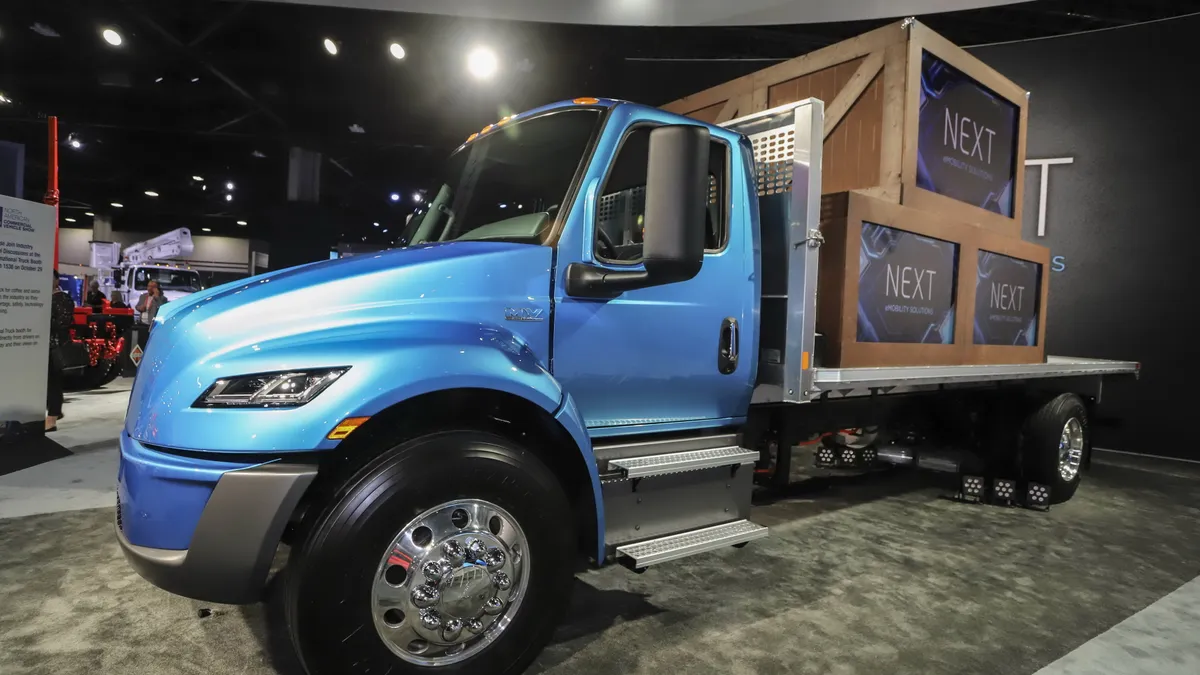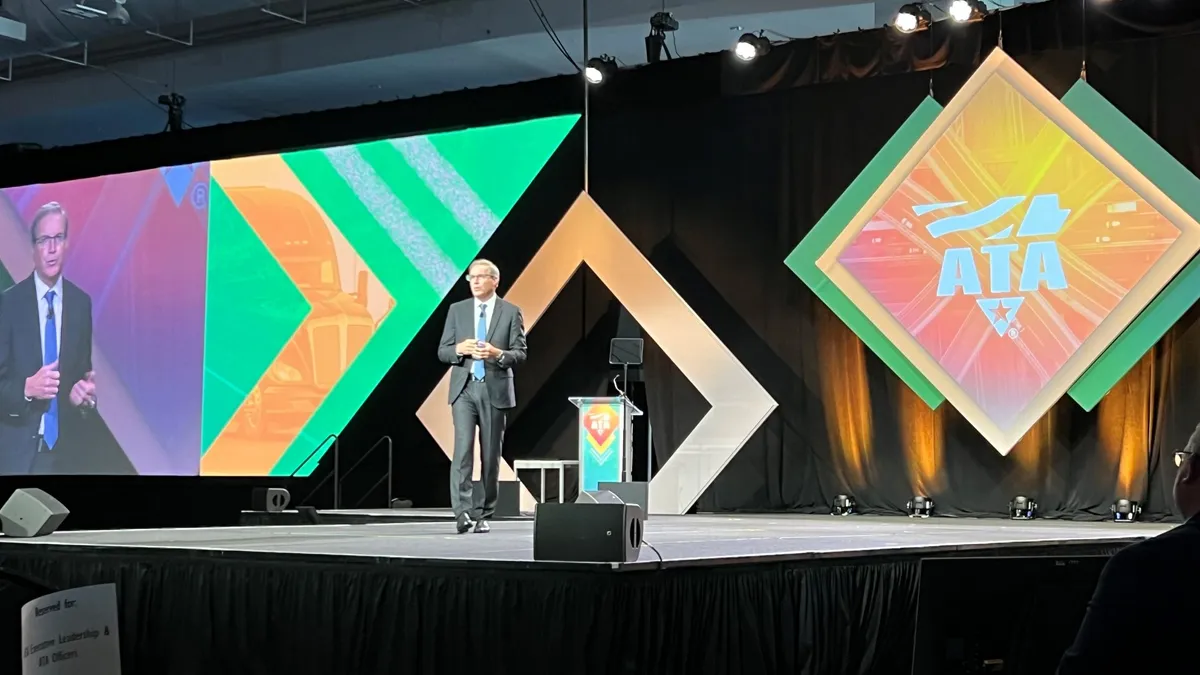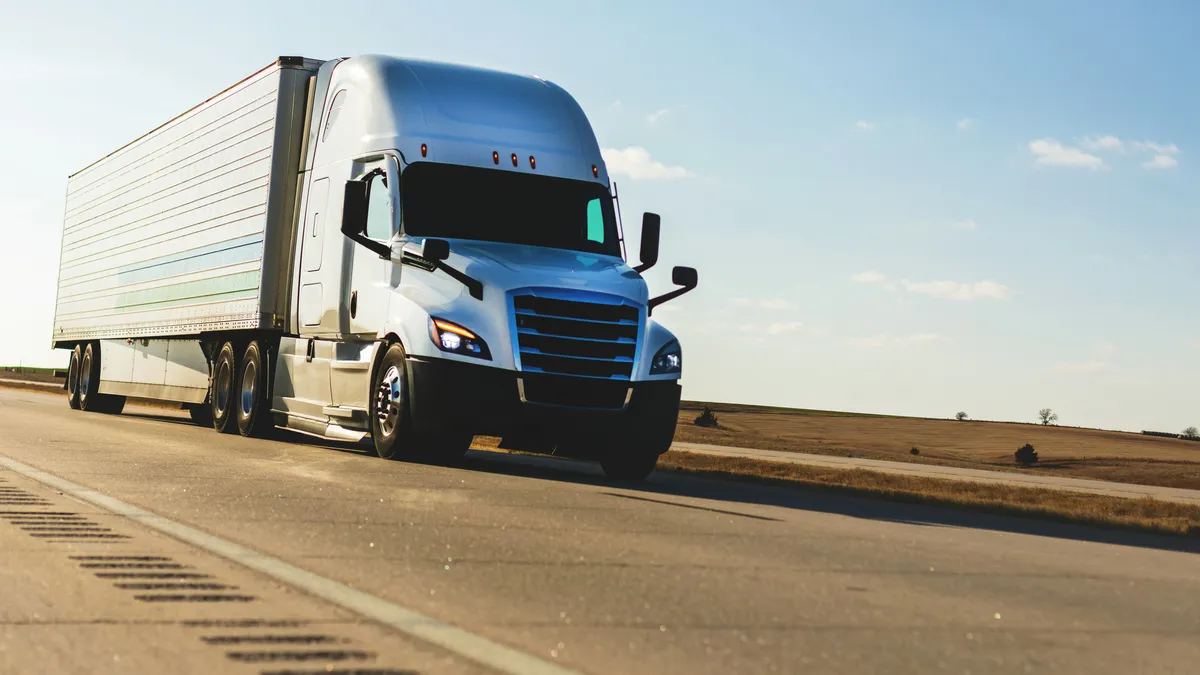Dive Brief:
- Navistar has entered into an agreement with In-Charge Energy to have the Los Angeles-based energy company provide fleets consulting services and internal charging infrastructure to the OEM and its customers, according to a Wednesday news release from Navistar.
- Part of the agreement has In-Charge educating buyers of Navistar's electric trucks about how to operate and maintain them. "With electric vehicles, it's important to understand that we can provide the very best bus or truck for our customers, but if they don’t have a partner to show them how to operate it, charge it or take care of it in the long run, it likely won’t be a successful deployment," said Jason Gies, director of business development at Navistar's Next eMobility solutions, in the release.
- In the future, "the total cost of ownership ... promises to be less than conventional vehicles," according to Cameron Funk, CEO of In-Charge. "However, that is only possible with a well-designed charging infrastructure."
Dive Insight:
Adopting green technologies is all the talk within OEMs and fleets, in part because of consumer and government desire for zero emissions. But trucking is very much a "show me" industry, having been disappointed with models and technology in the past. Navistar was sued in 2014 for its MaxxForce engines, which were designed to decrease diesel emissions. The allegations cited "serious known defects in the engine and its components" and led to numerous settlements.
Navistar has so far only introduced a medium-duty electric model, first showing fleets the truck at the North American Commercial Vehicle Show in October. Navistar will kick off production in early 2021.
With the exception of driving the truck, adopting electric trucks or fuel-cell electric vehicles will come with a learning curve, said Mike Roeth, executive director of the North American Council for Freight Efficiency. "Fleet management operational challenges are many, and this partnership should really help," he said, particularly the consulting services aspect of the agreement.
Fleets usually are wary of learning curves, as technology can have unpredictable effects. That's one of the reasons Hyliion is contracting with Idealease in its one-truck tour across the country. Idealease will make a short-term lease of Hyliion's hybrid diesel truck to customers through the end of the year, according to a joint news release.
Maintenance of electric trucks is another concern. There is already a shortage of trained mechanics and technicians in the trucking world.
"Now it's much more complicated because it's not just hiring a qualified diesel technician. You're going to have to hire somebody who's willing to also be an electric technician," Rick Mihelic, NACFE director of future technologies studies, told Transport Dive in a July interview.
But once the learning curve is over, "we believe truck drivers will love EVs," Roeth said. "Improved efficiency — vis a vis range — will be delivered with good driving habits."
Roeth said fleets will want to study routing differences given electric-charge levels, charging management and maintenance of the new components.
NACFE endorses electric trucks' initial deployment in regional hauls, because of their limited range. NACFE released a study with the Rocky Mountain Institute on the regions with most potential for EVs. The top six regions were Southern California, Northern California, Cascadia (the Northwest), the Northeast, the Texas Triangle and the Front Range (the Denver region).












